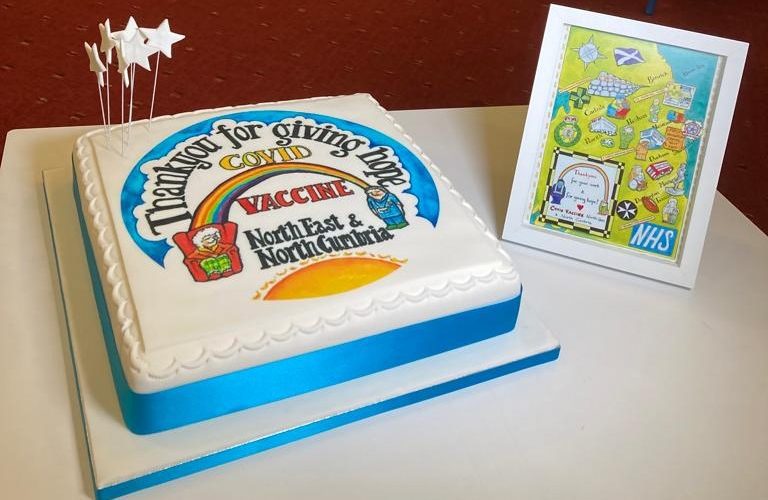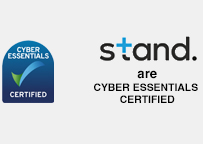The COVID-19 vaccination programme has been the runaway success of the UK’s response to the pandemic.
Stand were asked to support the North East and North Cumbria’s COVID-19 Vaccination Programme, providing strategic communication and involvement advice and operational support to the vaccination programme’s leadership team. The mission – to vaccinate as many people as possible, as quickly as possible.
Stand’s director, Caroline Latta, shares her observations on the wider learning for communications and transformation professionals from the fastest and most successful vaccination rollout in the history of the NHS.
Relationships count
It’s a universal truth that relationships count, things get done through relationships and trust. The vaccination rollout has proved that strong relationships make all the difference, both building on those already there and developing new ones, when it comes to getting things done quickly.
The extensive network and professional relationships we’ve built over twenty years working with NHS and public health colleagues across the country are particularly strong in the North East.
Joining the regional COVID-19 Vaccination Programme, hosted by Newcastle Hospitals, six months into the pandemic, we knew that relationships would be the key to the success of the programme. Building and sustaining them through trust and open communication was made a priority in our strategy.
Time and again in the tight spots, when it looked like what we were attempting was about to prove it was impossible, those relationships delivered.
Everyone is a leader
Everyone at every level was a leader in the vaccination programme. No single partner, person or place was more important than any other. Everyone at every level had their role to play.
From the outset, the vaccination programme took the view that it is local leaders at all levels who make things happen. It was the regional programme’s role to co-ordinate and to filter the important clinical policy and key message must-dos from the loud noise of mass information overload. Our job was to support clinical commissioning groups, primary care and local authority public health leadership to stand up local services, quickly.
Lots of leaders in a rapidly changing environment needed up-to-the-minute sources of information they could trust. Our large engagement events, often with hundreds of attendees, were open, honest and transparent where programme leaders would respond to unfiltered questions and listen directly to the challenges being faced out in the field.
The approach meant local councils, hospitals, GPs and community networks could work together extremely closely to reach as many people as possible for their vaccination.
Single clear messages for cut through and amplification
It was vitally important at a time of national emergency, with so much fear and uncertainty in relation to the pandemic, that public confidence in the NHS’s ability to deliver vaccination to the full adult population was established and maintained.
The national strategy saw single clear messages about who was eligible and when, balancing the pace of national rollout and vaccine supplies, no easy task.
While sometimes there wasn’t the clear forward view of when new age groups would be announced, it was right that this was nationally controlled.
The benefit of this was a sense of fairness and equity for the population which enabled a high level of cut through of messages. National, regional and local media reporting the same messages, consistently amplified through local authorities and NHS organisations’ social channels.
This made it easy as possible to act with a single voice and have clarity on what was being asked by the national NHS vaccination programme team and government, and a clear call to action for the public.
Newcastle Hospitals was one of a handful of centres across the country to vaccinate the first patients on 7th December 2020 and opened the country’s first large vaccination centre at The Centre for Life soon afterwards.
The regional and national media have supported every single milestone, from opening new large vaccination centres, mobile services and new age groups opening up. Made possible by the willingness of the vaccination programme leaders to step forward to be interviewed, supported with clear messages and briefing.
The importance of good data
At the outset of the vaccination programme, the availability of good data was limited. This changed rapidly, with data becoming available to allow the vaccination uptake to be viewed in real time. This allowed regional and local vaccination leaders to identify the areas where vaccination uptake was lower, understand communities were affected and take action. Through the leadership of the Director’s of Public Health, the different approaches taken to address inequalities and to engage people from underrepresented groups were mapped across the region, captured by geography and population group. A catalogue of information demonstrating a wide range of different interventions was developed to share good practice. Importantly, four key learning points are transferable to inform future planning for COVID-19 and other vaccination programmes:
- Better information for communities and professionals such as alternative language, easy read, etc
- Increasing accessibility, taking the vaccine to the people
- Empowering communities, using community champions and other trusted voices, and
- Partnership working and collaboration, linking with businesses and the community and voluntary sector.
Reflections
The pandemic response has highlighted as never before the value of communications and engagement as a strategic function in NHS organisations and public health departments. Nowhere was that more evident than in the rollout of the vaccination programme.
It was never going to be an easy task. The foresight of programme leaders in the North East and North Cumbria to put strategic communications and engagement at the heart of the programme meant it was as smooth as it could be, with many challenges quickly resolved and others identified and avoided before they occurred.
Over the course of the rollout, the regional vaccination programme itself, with the support of local authorities, opened seven mass vaccination centres who were able to vaccinate thousands of people a day. The sheer volume and geographical spread of primary care networks, hospital hubs, and later, community pharmacies, saw nearly 300 vaccination outlets that have provided over 6 million first, second, booster and other doses in-line with JCVI advice.
See more on our work with the COVID-19 North East and North Cumbria Vaccination Programme


